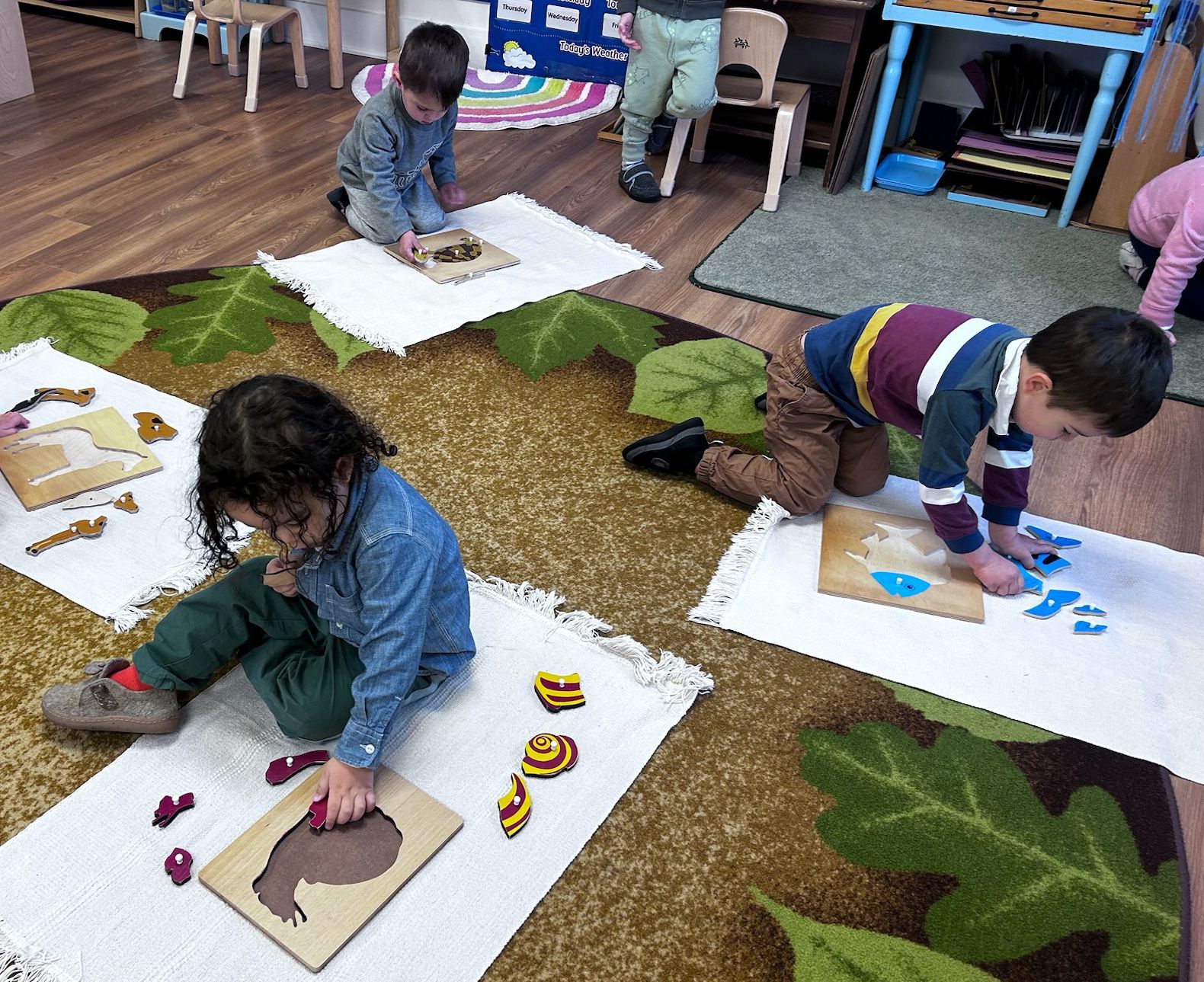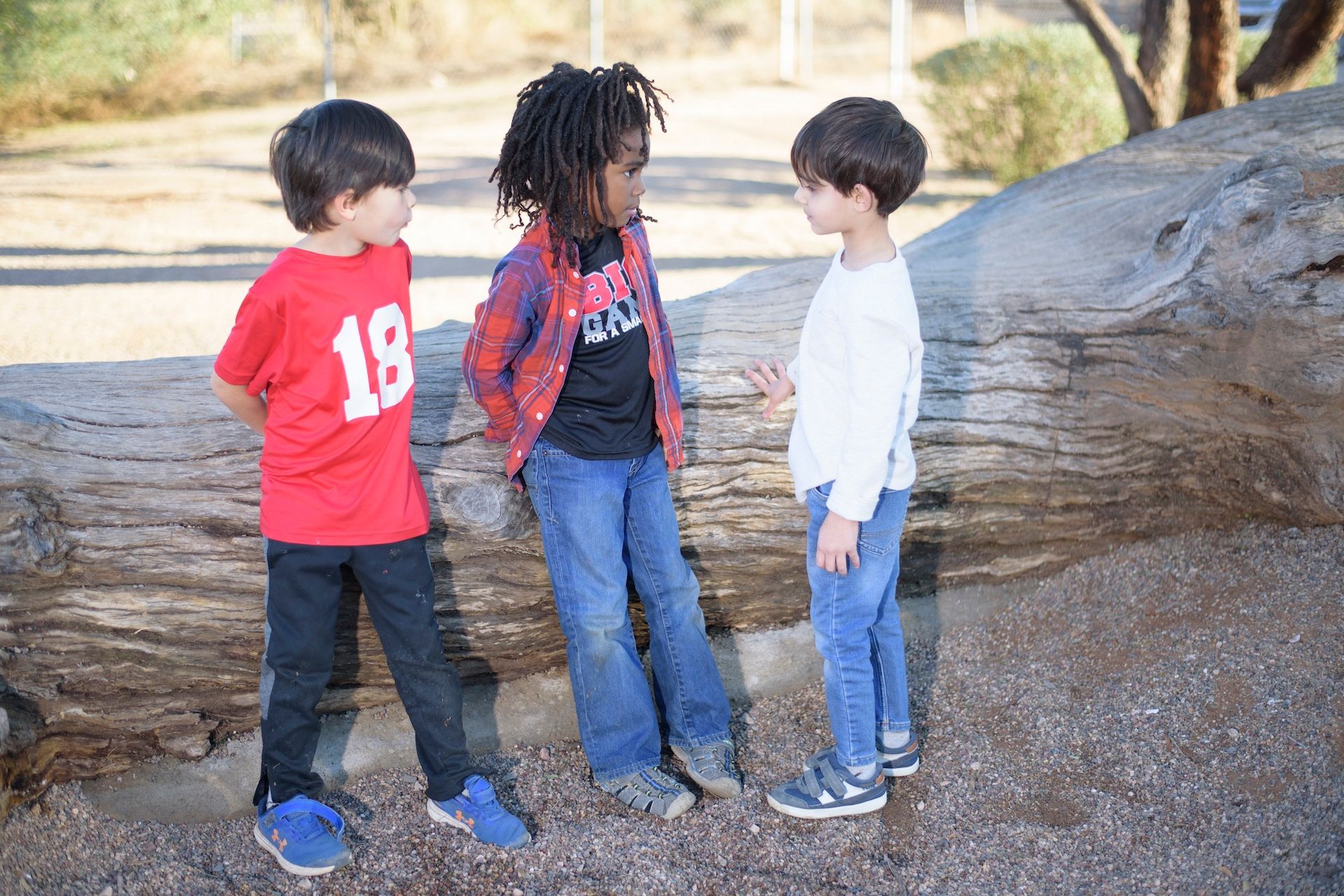Keeping the Big Picture in Mind

As parents, we want the best for our children. It hurts when they encounter setbacks or challenges. When they experience frustration or failure, we want to fix things so they don’t suffer.
Lessons Learned
However, physical and even emotional discomfort is a significant part of how we grow and learn. In fact, mistakes and failures have a number of benefits including an increase in self-confidence, creative thinking, problem-solving, and patience.
When children learn that they can overcome obstacles, they build self-confidence and are more willing to challenge themselves in new activities. In addition, when children can experiment and have room for error, they can explore and create new approaches, which leads to flexibility and expansive thinking.
Success requires time and continuous effort. When children aren’t afraid of failure, they understand that progressing isn’t always a straight line. Rather than being afraid and giving up when faced with difficulties, children are more willing to take a circuitous route, try different directions, or experiment with diverse options. This process also helps children develop logical thinking skills and the ability to solve problems confidently.
Home-School Partnership
So that our children can reap these benefits, it helps if we stay in communication about challenges that may arise. Whether social, emotional, academic, or intellectual, it’s inevitable that our children will experience some level of difficulty at some point in their school years. Our hope is that we can work as partners to identify any challenges or areas of discomfort, and also provide the structure, freedom, patience, and confidence to allow kids the opportunity to struggle.
In Montessori, we are well-trained to observe children, balancing both a deep awareness of developmental milestones and the knowledge that individual children have their own pace and trajectory as they develop as young humans. We recognize that some children may need additional support and we also want to make sure we aren’t rushing in too soon to rescue them, which can lead to a decrease in self-confidence and resilience.
A partnership between home and school means that we ask you to trust the process while also staying in dialogue with us about your hopes and fears for your child. Conversely, we commit to communicating what we observe about your child’s progress and areas for growth.
Over the many years of schooling and parenting, we’ve found that an investment in longer-term learning and growth necessitates tolerance for some shorter-term disappointment.
Communication Road Map
Good communication is the heart of positive partnerships! To that end, we offer some tips for cultivating and maintaining this long-term relationship in support of your child(ren). First and foremost, we rely upon timely communication and yet also want to respect everyone’s busy lives. If something comes up, please don’t hesitate to reach out to us to share what is on your mind. We want to better understand what your child is experiencing or any concerns you have.
We also ask that you consider a big-picture perspective. If your child complains about something bad happening, take a deep breath and acknowledge that they might need to let off some steam or just feel some big emotions. Listen without judgment and reflect back on what you hear. Once they are done, you can ask if they want some help solving the problem or communicating with someone at school.
It helps to think about how to set the stage for your child to be their own self-advocate. If they want help, you can offer to brainstorm solutions, draft an email together, or even role-play how to handle the situation differently. Often, though, our children just need to let out their upset or frustration so they can move on with their day. They need us, as parents, to be a safe place to vent.
When or if you do contact the school, please let us know if your child is aware that you are sharing your concerns or observations so we can approach the situation with the utmost respect and care.
It’s also important to remember that as adults, we are constantly modeling for our children. Approaching even challenging circumstances with thoughtfulness, care, and goodwill shows our children how they can tackle tough situations with grace.
Long-Term Goals
When we talk about what we want for our children, we often discover some common themes. We want our children to be adaptable, kind, and hard-working. We want them to be creative and confident in their own abilities. We want them to be self-reliant and independent, while also collaborating with others and learning from those with different perspectives. We want them to live peaceful lives, celebrate present moments, and have a sense of purpose.
While we don’t want to see our children struggle, one of the most important things we can offer them is the chance to confront and work through challenges. We commit to being your partner in this process. Please schedule a visit to the school, observe the classrooms, and connect with us about how we can work together!





